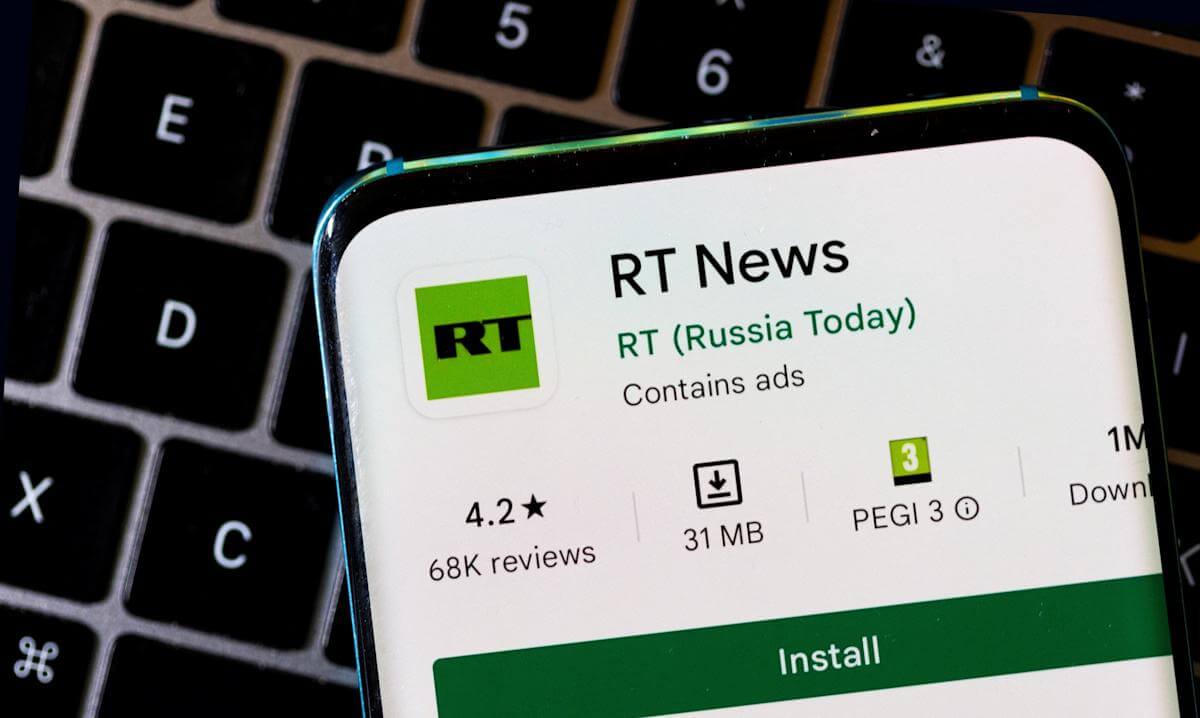On Sunday, European Commission President Ursula von der Leyen stepped up the European Union’s (EU) support for Ukraine by announcing further sanctions against Russia, banning its state-owned media in an effort to stop the spread of disinformation defending President Vladimir Putin’s invasion of Ukraine.
In an official press release, von der Leyen said, “We will ban in the EU the Kremlin’s media machine. The state-owned Russia Today and Sputnik, as well as their subsidiaries, will no longer be able to spread their lies to justify Putin’s war and to sow division in our Union,” adding, “We are developing tools to ban their toxic and harmful disinformation in Europe.”
WASHINGTON -- Meta says it is restricting access to Russia's RT and Sputnik in Europe over concerns the two state-controlled media outlets are being used to spread disinformation and propaganda.
— Chris Walker (@WalkerATX) February 28, 2022
Following the EU’s announcement, Meta, Facebook’s parent company, said it would restrict Kremlin-owned news outlets such as RT and Sputnik’s access to the bloc. Nick Clegg, Meta’s Vice President for Global Affairs, tweeted, “We have received requests from a number of Governments and the EU to take further steps in relation to Russian state-controlled media. Given the exceptional nature of the current situation, we will be restricting access to RT and Sputnik across the EU at this time.”
“We will continue to work closely with Governments on this issue,” he added.
We have received requests from a number of Governments and the EU to take further steps in relation to Russian state controlled media. Given the exceptional nature of the current situation, we will be restricting access to RT and Sputnik across the EU at this time.
— Nick Clegg (@nickclegg) February 28, 2022
After Russia imposed a partial ban on Facebook for failing to stop fact-checkers and content warning labels on its media, the social media giant on Friday announced restrictions on Russian state media’s ability to make money from its platform.
On Monday, Baltic countries and Poland asked Google and Facebook to restrict Kremlin-backed media’s web streaming channels and social media accounts. French Digital Affairs Minister Cédric O called on the French representatives of tech companies, including Google, Facebook, TikTok, and Microsoft to take similar action.
Google, Facebook, YouTube and Twitter must do more to tackle disinformation related to Russia’s invasion of Ukraine, the heads of government in Poland, Lithuania, Latvia and Estonia have said.
— Fuad Alakbarov (@DrAlakbarov) February 28, 2022
Subsequently, Twitter said it would label and reduce the visibility of tweets linked to Russia’s RT and Sputnik channels, a policy that has already been in place since 2020. In 2017, it blocked advertising from RT and Sputnik following the presidential elections in the United States and in 2019 banned ads from state-backed media from all countries.
Microsoft, meanwhile, removed RT apps from app stores, took down any content related to Russia-backed media from its news feed, and de-ranked the sites in Bing search results. Likewise, TikTok suspended RT and Sputnik’s accounts in the EU, while Google’s YouTube said it would limit recommendations for Russian-backed media channels.
Moreover, Canadian telecom operators also imposed restrictions on the RT channel. British Secretary of State for Digital, Culture, Media and Sport Nadine Dorries also wrote to The Office of Communications asking whether Russia’s RT channel should be allowed to promote the Kremlin’s disinformation in the United Kingdom.
We will also be asking the CRTC to begin the process of reviewing Russia Today’s presence on Canadian airwaves – because we cannot allow falsehoods, propaganda, and disinformation about Russia’s war to continue spreading in Canada.
— Justin Trudeau (@JustinTrudeau) February 28, 2022
In fact, regulators across the globe have been concerned about Russian state-backed media for some time now. German regulators took Russia’s state-run channel RT off-air days after its launch in December. Berlin’s broadcast authority said at the time: “The broadcast is in German and targets the German market,” adding, “It did not apply for a broadcasting permit, and nor was one issued.”
Russia, however, has sought to take retaliatory action. Last month, Russian authorities moved to shut down Deutsche Welle’s (DW) Moscow bureau, withdrew accreditations from journalists, and considered labelling the organisation as a foreign media outlet performing the functions of a foreign agent. The Russian Foreign Ministry also said it would also terminate the DW satellite and other broadcasting units, and ban officials involved in restricting RT’s broadcast in Germany from entering the Russian federation.

